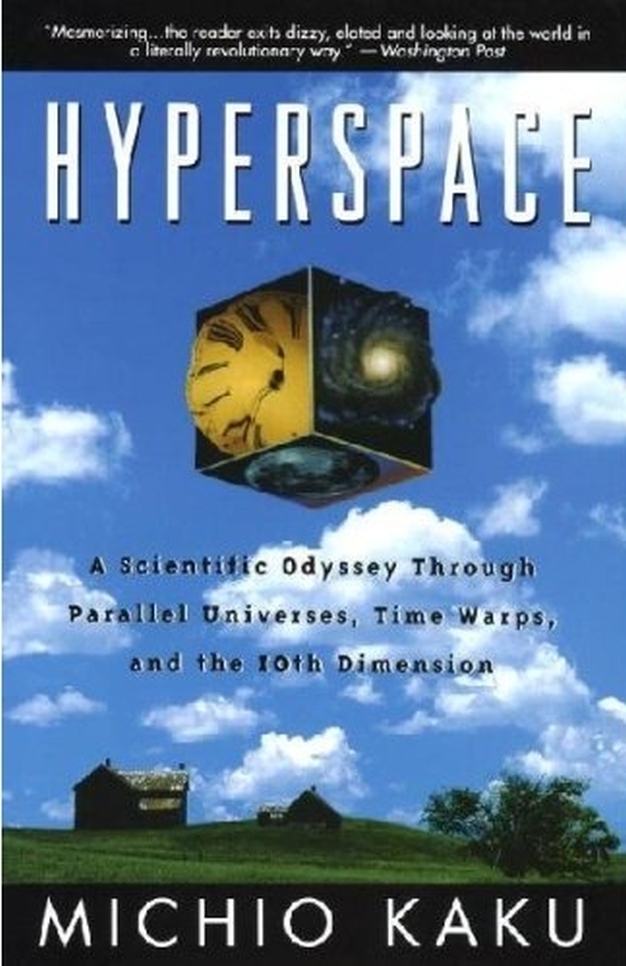Is Christianity a Confidence Trick?
Many people these days think that Christianity is a superstition, but the “real reason” they don’t like religion is because of the ministers and priests they have met over the years. More than a few Anglican priests have very high-pitched voices, and you wonder whether it is because they have taken the advice of Jesus that sexual deviates should get themselves castrated. More annoying than their sappy voices and appearance is their advocacy of Labor Party policies. To cap it all off, they expect you to take part in time-consuming and embarrassing church services with them. Little wonder that people invent elaborate arguments as to why Christianity is rubbish, which we will look at in a minute. But now let’s have a look at a real Christian:

The man reviewing the troops is Zeljko Raznatovic, known to the Western media as “the Serb warlord Arkan”. Zeljko is not the sort of man the public usually associates with Christianity. This shows the distorted public perception of Christianity. The reality is that it has been accepted for two thousand years that a soldier can be a Christian. Many of the early Saints were soldiers. On the one hand, people see how a policeman can shoot a bank robber dead and still be a Christian, but if a soldier shoots a rebel dead then he supposedly is a war criminal and not a Christian.
Far from being a warlord, Zeljko worked for the Yugoslav Government since 1973 when he joined the Yugoslav Secret Service. The counterpart of this in Australia used to be called the Special Branch of the police. So Zeljko was basically a policeman. After the death of President Tito, which led to the disintegration of Yugoslavia along ethnic lines, Zeljko set up a militia to counteract the various rebel militias.
As a result of his success in fighting the rebels from 1990 to 1992, Zeljko became a national hero and was elected a Member of Parliament. In 1995 he married the Serbian pop star Ceca. In 1997 Zeljko was summoned to appear before the United Nations War Crimes Tribunal for executing rebels without first putting them on trial. In 2000, after the American invasion of Yugoslavia, Zeljko was assassinated by American agents.
Zeljko’s strong Christian beliefs are shown by his nickname “Arkan”. This is short for Archangel. An Archangel is a celestial being that punishes wrongdoers, sort of like a policeman. Ask yourself what sort of man gives himself a nickname like Archangel. Obviously he was a man who thought about religion quite a bit.
We can compare Zeljko Raznatovic with the former American President, George Bush. President Bush, when he was Governor of Texas, ordered the deaths of hundreds of convicted criminals. Zeljko Raznatovic is also responsible for the deaths of hundreds of criminals. Treason is regarded as a more serious crime than murder. Arguably Zeljko Raznatovic had greater justification fo the deaths he instigated than George Bush, since the men he executed were traitors rather than murderers.
Now you might say that the people who George Bush executed had been found guilty by a court, while the people who Zeljko Raznatovic executed might have been innocent. This is only a legal technicality, though. Whether a person is guilty has nothing to do with a court case. It is all about whether they did the deed or not. If they did the deed, they should suffer the punishment, irrespective of what a court may think.
Legally speaking Zeljko Raznatovic might be a war criminal, and George Bush might be squeaky-clean. But morally there is no difference between them. One is prepared to lay waste rebel villages with mortar fire, and the other is prepared to wipe out entire cities with nuclear missiles. They are both Christians, they both don’t want to go around killing people, but they will do whatever it takes to protect their country. There’s nothing in the Christian religion that says you can’t do that.
If George Bush and Zeljko Raznatovic can kill people and still be Christians, it is not refraining from killing people that distinguishes you as a Christian. The important attributes that distinguish a Christian from other people are that you believe that you will be brought back to life after you die, and that you believe that you will have to answer for your actions. For example, Zeljko Raznatovic believed that if he killed people for no good reason, he would suffer eternal torment. George Bush believes that if he nukes Russian cities he will wish he had never been born. So because they are Christians, they only kill rebels and murderers and the like.

Let’s now consider whether there is any justification to believe you will be brought back from the dead. To be alive, you need a body. Before you were conceived, you didn’t have a body, so you didn’t exist. If you had existed before you were conceived, you would remember it.
The importance of the body is shown by the fact that when the body is injured or drugged in certain ways, you lose consciousness. Losing consciousness is the same as temporarily ceasing to exist. Every day we have the experience of losing consciousness, when we go to sleep. When we are asleep, we temporarily cease to exist.
Sleep is a process of the body, where the brain temporarily reduces its level of functioning. To be conscious, we need our brain to be functioning in such a way that we are aware of what is going on around us, and can remember what has happened to us in our life. So being conscious depends on having a body. If we died, we would not have a body, so we would cease to be conscious.
If we died, and our body decomposed, then the details of our memories would be destroyed, and there would apparently be no way to reconstitute them. Hence we would be unconscious for all eternity. This was known long before the birth of Christ. The more educated Romans believed that after you die, that is the end of you. Many people these days, including many who claim to be Christians, believe this.
People have thought that we could get round this problem by preserving our bodies so that they can be brought back to life at some time in the future. The ancient Egyptians attempted to preserve their bodies, but unfortunately for them they preserved the wrong parts, and threw away the brain. Recently some people have sought to freeze their bodies with liquid nitrogen until a cure can be found for the illness that killed them.
This is not as silly as it sounds. There have been cases where people have fallen into very cold rivers or been caught in avalanches. They have been found, apparently dead, and brought back to life again. Normally when someone has stopped breathing for several hours or even minutes, it is not possible to resuscitate them. This is because blood clots form in the brain and cause brain damage that cannot be fixed with current technology.
Experiments have been done with dogs where they have been injected with a drug that stops the blood from clotting. Then their breathing has been stopped for a period that would normally suffocate them. Then however it has been possible to resuscitate them, and tests have shown that they are completely normal. So in principle it should be possible to bring back to life people who have died and been frozen in liquid nitrogen.
A practical issue arises in that the company that is storing the bodies might go bankrupt, and be unable to continue freezing the bodies. This actually happened in the case of one company, and the bodies thawed out and decomposed. Hence it would be desirable for the bodies to be stored in some place like Greenland or Antarctica, so that the natural cold would preserve the bodies, and it would not matter if the company went bankrupt. The ideal thing would be a monastery in Antarctica with an underground crypt to store the bodies.

This is all very well for people who have been frozen in liquid nitrogen. But what about people who have been buried or cremated? They have been told by Jesus Christ that they will be brought back to life again. Is there any real prospect of them being brought back to life?
For dead people to be brought back to life, as promised in the Bible, they would need to be transported through time to the future, and then cured of whatever they died of. While existing engineering methods allow for such things as turning lead into gold, and bringing the dead back to life, at present there is no method for extracting dead bodies from several thousand years in the past. But remember, our technology is very primitive. A hundred years ago, it was considered impossible to transmit signals without wires, and now everyone has a mobile phone.
One hundred years ago, there were experts who said that anything like radio was impossible. When they said that it was impossible, they meant not only impossible now, but also impossible in 100 years’ time, or in a million years. Clearly the pronouncements that radio was impossible were very rash, and wrong. So also it is rash to say that in a million years it will be impossible to extract dead bodies from a million years previously and bring them back to life.
The best available knowledge on physics suggests that it will ultimately be possible to extract dead bodies from the past and transport them through time. If you are interested in this sort of thing, the book to read is “Hyperspace” by Professor Michio Kaku. This was published in 1994 by Oxford University Press, which only publishes technical books if what they say is correct. This book is fairly intelligible, and if you can read a newspaper you should be smart enough to read it.

According to the book, scientists like Professor Kaku have been trying to come up with a better theory of physics. At present, there are two theories, the Theory of Relativity, which deals with things like how to navigate spaceships and astronomy, and the Theory of Quantum Mechanics, which deals with things like how to build nuclear weapons and faster computers. The scientists have been trying to combine the two theories, and come up with a “Theory of Everything”, as they like to call it.
In the course of doing this, they have found that there are more dimensions than previously thought. In the past, it was thought that there are three dimensions of space, and one dimension of time, a total of four dimensions. But as it turns out, there are ten dimensions! In our everyday life, we are only aware of four dimensions, but if for example we were to try to build a nuclear powered spaceship, we would become aware of the other dimensions.
The view that it was impossible to travel backwards in time is based on the assumption that there are only four dimensions. Since however there are ten dimensions, the earlier assumption is incorrect, just as it is incorrect that you cannot send messages through space with your mobile phone. The best available information is that it will be possible eventually to devise some method to bring the dead back to life again, even if their bodies have decomposed.

It is reasonable to suppose that at some time in the future it will be possible to go back in time, retrieve your body, and bring you back to life again. But who will want to bring you back to life, a million years from now? The people who are around then will want to bring their parents and grandparents back to life, but not some guy who lived a million years ago.
So they will bring their parents and grandparents back to life. And these people who are brought back to life will want to bring their parents and grandparents back to life. More and more people will be brought back to life, going further and further back in time. Eventually they will go so far back that they bring your grandchildren back to life. Then your grandchildren will want to bring their parents and grandparents, including yourself, back to life. Even though the people who are around in a million years will not give a damn about you, rest assured that sooner or later you will be brought back to life.
But what would happen if your grandchildren didn’t want you to be brought back to life? Or what if the government a million years from now didn’t think that you were a suitable person to be brought back to life again? They are going to pass judgment on the people who they bring back to life. Even if they brought you back to life again, they might not give you as much money as they would if they approved of your former life. Or you might go to the back of the queue of people to be brought back to life, and stay dead for thousands of years more than other people.
The message of Christianity, then, that the dead will be brought back to life again, and that they will have judgment passed on their actions, is essentially correct. Some people assume that the Bible says that people will be brought back to life by magic. Others assume that people will be brought back to life only “in a sense”. People assume that the Bible says all sorts of things that it doesn’t say. Since they don’t read it, or ignore the parts they don’t like, they wouldn’t know anyway. What the Bible says is that the dead will be brought back to life, as good as new, by the operation of Divine Providence, which includes high technology.

It is quite good for people to know that they will be brought back to life again. So even if you are run over by a tank tomorrow, all is not lost. Before Jesus Christ came along, people thought, “Life’s a bitch and then you die”. After Christianity came along, people knew better. If you compare the outlook on life of an Atheist with the outlook of a Christian, even the Atheist would admit that the Christian has a better outlook on life.
Atheists justify their bleak assessment of life by saying that it is the truth. They say people have a right to know that there is no life after death. They admit that Christians have a more pleasant existence than Atheists, but claim to be realists, unlike Christians who delude themselves with pleasant ideas of eternal life. It is like someone who eats only bread and water, and says why eat gourmet food, since it is only carbohydrate, and bread has as much nutritional value as gourmet food?
While this may be true, it is more pleasant to eat gourmet food than to eat only bread and water, and more pleasant to think Christian thoughts than Atheist thoughts. A belief system should be regarded like the operating system of a computer. When comparing operating systems, you don’t ask, “Is Windows 8 true?”, or “Is Linux true?” You compare their performance. Comparing Atheism with Christianity, we find that Atheism is a much less effective belief system than Christianity. It is also not true that people who die cannot be brought back to life again.
Atheists also point out how Christianity is like a confidence trick. The Church says, “Do as we say, and in return, after you die, we will promise you eternal life”. When you have died, and have become eternally unconscious, and found out that there is no such thing as eternal life, it is too late to do anything about it. So, in other words, the Church is making a promise that it will never have to deliver on, like a confidence man who sells you an insurance policy, and then leaves town and does not honour the insurance policy.
Christianity would be a confidence trick if the Church got any benefit from having you believe in Christianity. Looking at some churches, you could be forgiven for thinking that they are a confidence trick. Catholic bishops live like millionaires, and have the political influence of feudal barons. On the other hand, Orthodox bishops ask only for food and clothes and a roof over their heads. They don’t get any benefit from you going to church. The criticism of Atheists about Christianity being a confidence trick applies only to certain churches, and not to Christianity as such.

For many Australians, going to church is the low point of their week. On the other hand, many Australians who don’t go to church enjoy the customs of Christmas, and have a Christmas tree and decorations. Just as Christmas is the most enjoyable day of the year for most Australians, so Sunday should be the most enjoyable day of the week. The Australian churches have ruined Sunday, by turning church into a Labor Party lecture.
In contrast, for Orthodox Christians like Zeljko Raznatovic’s men shown in the photographs, Sunday is the high point of their week. Going to church is an important part of their cultural identity. If you are a Serb, you go to church, and a person who doesn’t go to church is by definition not a Serb. They are a Moslem, or one of those American sensitive new-age faggot types, or some other form of “low life”. On a Sunday, you wouldn’t find a Serb anywhere other than at church. The priest is the most popular man in the community, because he presides over the most popular day.
The Serbs, Greeks and other Orthodox Christians show Australians how our mainstream society was before “political correctness” came along. Their churches are run the way our churches used to be run. You still can find Anglican churches and other churches that are run along traditional lines. If you know of one, go to it. If not, you might in the meantime at least consider yourself as a Christian, and put down in the census that you are a Christian.

